The JRB is proud to present an excerpt from House of Stone, the debut novel by Novuyo Rosa Tshuma.
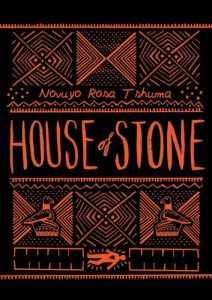
House of Stone
Novuyo Rosa Tshuma
Penguin Random House, 2018
Tshuma grew up in Zimbabwe, and has lived in South Africa and the United States. Her collection of short stories, Shadows, was published to critical acclaim in 2013, and won the 2014 Herman Charles Bosman Prize.
Read an excerpt from House of Stone:
~~~
Book One
Of Fathers and Grandfathers
A man of consciousness, gifted with a mind and a blank screen and a keyboard such as I have, makes his own hi-story proper. There is no better way of gaining possession of yourself than chewing the bones of the mind over the question, Who am I? And who you are starts with a robust family lineage in which to cultivate your roots. A man has to be able to trace the details of his family hi-story at least two lineages down, to his grandfather. Otherwise, he can’t really claim to be standing on solid ground. You have to be able to point to a man and say, ‘That’s my grandfather.’ Or make do with a sepia-tinted photo, at least, chewed at the edges by the affectionate teeth of time.
As my surrogate father has neither glossy photo nor the confidence to point and say, ‘That’s my grandfather,’ I have been left with the task of resolving the matter of our family lineage. And it hasn’t been easy, this. For, one moment, while ensconced in the toasty Bell’s, Abednego claims that his father was the man he grew up calling ‘Baba’, husband to my surrogate grandma, that treacherously demure woman who was in her heyday such a blot-out-sun, so blinding was her beauty. And then, the next moment, having become much too heated from the Scotch whisky, he makes rather dubious assertions that his real father is a certain James Thornton, once-upon-a-time owner of that Thornton Farm whose lush harvests salivated many a tongue in the adjoining Tribal Trust Lands where young Abednego grew up, relegated to live there by the state during the time of racial segregation, back when Zimbabwe was still Rhodesia.
When he blubbered this in my lodgings two days ago, I wrinkled my nose and raised an eyebrow. Frowning, he pulled up his shirt sleeve and thrust his arm in my face, prodding the flesh. His inner forearm, which doesn’t get much sun, is closer to cream than yellow, and the hairs are a pale gold rather than a deep brown.
As though sensing still my scepticism, he launched into a dramatic monologue of the day the farmer attempted to lay claim to what, by blood and sperm, was allegedly his. Baba was sitting outside his hut in the shade of the mopane tree on the morning in question, cleaning his FAL rifle and decked in his full Rhodesian African Rifles army apparel—a bush-green shirt tucked into pleated shorts, woollen hose tops, black stick boots and a slouch hat—busy bobbing his head solemnly to my (surrogate) Uncle Zacchaeus as he read verses from the bible, in an English that the old man understood and extolled but did not himself know how to read, when Farmer Thornton came wheezing over the hill of the north-east, from the direction of his farm, telephone cord in trembling hand, dust simmering about his sandalled feet. My surrogate father Abednego, who had been crouching behind the kraals some hundred paces from the mopane tree, listening to Zacchaeus read and trying rather unsuccessfully to mimic his brother’s fanciful pronunciations, straightened up and gawked at the farmer.
‘Give me the boy!’ cried Farmer Thornton, gesticulating towards Abednego and lambasting Baba for not looking after him right, for sending the little munt Zacchaeus to school and not my surrogate father.
My surrogate father began to squirm, his yellow face ripening at the farmer’s outburst. He’d never thought, in all his nineteen years, that he could go to school. Zacchaeus was the special one, the younger son and yet the cimbi of Baba’s heart, and although something bilic used to brew inside him during those first days when he would watch his younger brother being shaken awake every morning to go to the sole school for Africans in the district some thirteen kilometres away, this bile had since settled in its rightful place in his gallbladder.
The farmer’s outburst made him feel all funny inside. He knew and had always taken secret delight in the fact that the farmer had always had a thing for him. Everybody knew, Baba, mama and even Zacchaeus whose buttocks the farmer always thrashed with a telephone cord whenever he caught them stealing crops in his fields. But this impassioned outburst, now, that was another thing altogether, bound to find the ears of the wind and be carried for an entire jealous village to hear. And so he squirmed, my surrogate father, and scowled and made all sorts of ugly faces, all the while secretly savouring the farmer’s words.
Baba raised his rifle until it was trained on Farmer Thornton. ‘Get away from here, mani, you fucking civvy!’
‘You dare to shoot me? You dare to shoot me, you munt, you dare to shoot a Rhodie?’
‘A Rhodie? You want to prattle to me about being a Rhodie? I was a Second Lieutenant in the Royal Rhodesian African Rifles, dammit, I served under Colonel JF Clayton and His Majesty Colonel-in-Chief King George VI, I fought alongside your superiors in Burma, the well-tempered Brits, bless their hearts, I killed men worthier of life than you, you Rhodie, and I will shoot you right here right now for nuisance behaviour in the presence of army personnel!’
Out of the corner of his eye, to his right, my surrogate father caught sight of his mama thrusting her head out of the kitchen hut, and then, upon seeing Baba and Farmer Thornton and the gun, she snatched it back in.
‘Step back, civilian! I’m warning you!’ yelled Baba.
‘Just give me the boy!’
Baba spat and cocked his rifle.
Off ran Farmer Thornton, back to his farm that flanked the Tribal Trust Lands, his red dungarees stopping just short of his ankles, making him look like a ragamuffin fleeing the scene of a crime.
Later that night in my pygmy room, I clickety-clacked on my MacBook and Googled this James Thornton. I found his blog, RHODESIANS NEVER DIE, which, along with a host of memories, patriotic ballads and tchotchkes of days gone by, plus the key words ‘Rhodesia’, ‘Prime Minister Ian Smith’, ‘platoon’, ‘munts’, ‘gooks’, ‘GA Henry’ and ‘terrs’, sports sixteen-thousand email subscribers and an average of fifty-thousand unique visitors each month.
I was surprised to see that my surrogate father and the farmer share a distinctive pair of wide, flared nostrils shaped like inverted teardrops, which seems to rather settle the question of fatherhood, even though immediately after recounting the Battle of the Fathers, Abednego had suddenly and vehemently declared to me that he was no son of a settler, that the old farmer was senile, that he had received his yellow skin from his mama’s side, passed down through the genes by an Indo-Caucasian great-great-great-great-grandma.
He’s going to have to come to terms with it all, sooner or later. Patrilineage is, after all, the well from which a man’s identity springs; we are our fathers’ sons, inheriting traits, mannerisms, talents and penchants. What delight to know your roots! To be firmly rooted. To look into a face and see in it something of your own. To notice a familiar tic. To come into knowing of your father’s fathers and their fathers before them.
What would his life have been like had he known, from the very beginning, his true ancestry? I wonder what my life would have been like, had I grown up knowing my father. There are terrible rumours, but no, this man who my Uncle Fani named, five years ago on his deathbed, has so much darkness in him, and me, haven’t I always leaned towards radiance? Besides, he was delirious, Uncle Fani; who is to trust the piffle of a dying man? But what would it have been like, to grow up knowing my forebears? What would it have been like for my surrogate father, had he grown up knowing his forebears? Would he have grown up roaming not the gecko-studded mud huts of his Baba’s compound but the dapperwood halls of that two-storey Thornton Farmhouse, his yellow skin made prickly by the disapproving glares from the framed photographs of his forefathers—the farmer’s temerarious grandpapa William Thornton Senior, slayer of natives and founding father of the Colony of Southern Rhodesia, and his equally valiant papa Captain William Thornton Junior, slayer of both natives and Germans in World War One under the flag of His then Majesty King George V—God Save the King!
These lives of our ancestors are chronicled on Farmer Thornton’s blog, which, given the farmer’s declared ambitions of attracting a large enough following to turn his Life and Times into a TV series, offers an embarrassingly uncensored hi-story of our patrilineage, the Thorntons.
This blood and sperm business started when the farmer lost his young Sonny Boy, killed in March of ’74 when those bantu terrorists puppeteered by World Communist Elements ambushed his regiment’s truck near the Rhodesian army camp at Fort Hare—the farmer’s words as per his blog, not mine! He was twenty-two and the only heir to the Thornton dynasty. Or maybe not. Though there aren’t outright confessions of Abednego as the bastard son from the farmer on his blog, I did find, amidst raunchy recollections of gyrating to the rhythm of cocoa-coloured hips in his younger days, a hangdog confession of ‘an ebony belle whose tsako made his heart lollop’. Can it just be coincidence that the pictures I’ve seen of my surrogate grandmother show a woman whose broad grin is split with a perfect gap between her two front teeth?
Said belle was the cause of his fall-out with his Ennis (Mrs Thornton) who threatened to leave him, foul-mouthed with fury, using words she never used, like Fassyhole and Quashie, until the farmer asked her if she’d been hanging around a Mrs Willoughby again. Ennis’s threats must have won the day, because there is little much else said about this ebony belle in the pages of his blog. Instead, these amorous accounts give way to the farmer’s rants against Her Majesty’s government for betraying his beloved Rhodesia.
These rants are very lengthy, at times talking about Rhodesia as though the past were present, cursing the ‘Mother Country and her cronies for selling the whites down the river’, at other times devolving into fantasies of a twenty-first-century Rhodesia that has been reinstated to its former glory … ‘Make Rhodesia Great Again!’ These diatribes bring him a surprising number of views for each of his posts, but none so much as the one that went viral about how he found his Ennis lying on the floor one day in the ’80s, during the time of the Gukurahundi Genocide, having been raped and strangled by the dissidents. I cried when I read about Mrs Thornton’s brutal murder. She would have been my step-grandma, my surrogate-surrogate grandma. Reading the farmer’s reminiscences, I felt that I’d lost my very own flesh and blood—my very own grandma!
~~~
Praise for the author
Novuyo Tshuma writes with an equal commitment to Joycean formal inventiveness and political conscience, and the result is absolutely thrilling.
—Garth Greenwell, author of What Belongs to You
Tshuma writes in arresting and trenchant prose that shows a gifted artist at work.
—NoViolet Bulawayo, author of We Need New Names
About the book
In the chronic turmoil of Robert Mugabe’s Zimbabwe, Abednego and Agnes Mlambo’s teenage son, Bukhosi, has gone missing. Erudite, enigmatic Zamani, their lodger, seems to be their last, best hope for finding him. In his eagerness to help, Zamani is almost a part of the family—but almost isn’t nearly enough. Ingratiating himself to Mama Agnes and feeding alcoholic Abednego’s addiction, he is desperate to extract their life stories and make their family history his own. As the Mlambos pray for Bukhosi’s return, Zamani will stop at nothing to make a home for himself—and each of them must confront the past to find a place in the future.
Bursting with wit, seduction and dark humor, Tshuma’s unflinching epic about the fall of Rhodesia and the turbulent birth of Zimbabwe celebrates the persistence of the oppressed in a nation seeking its identity amid political chaos and violence.

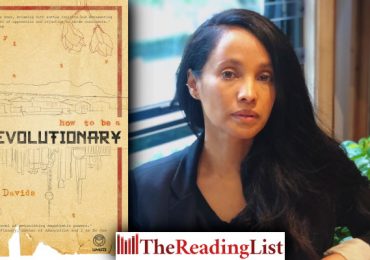
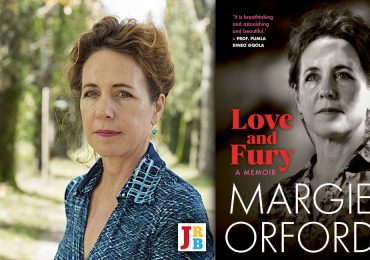
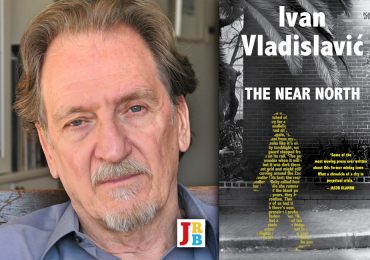
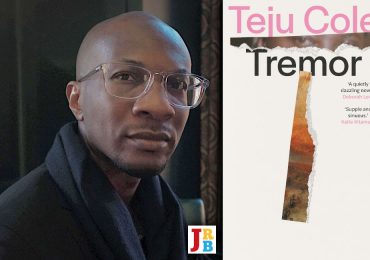
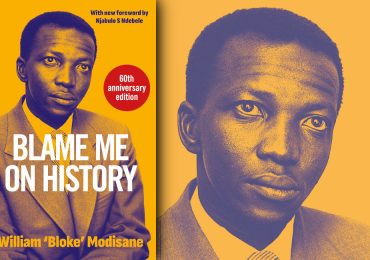
One thought on “Of Fathers and Grandfathers—Read an excerpt from House of Stone, the debut novel by Novuyo Rosa Tshuma”